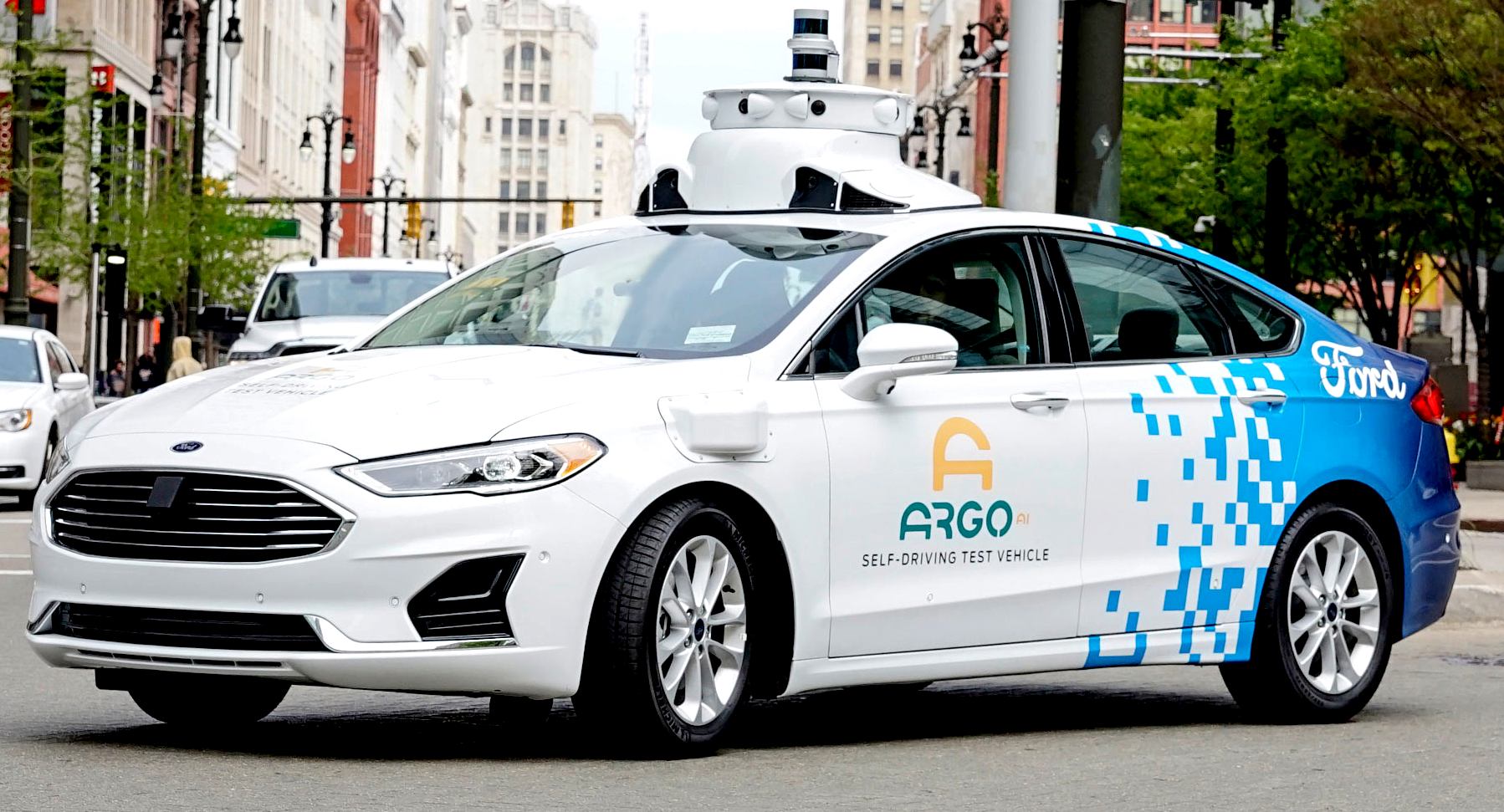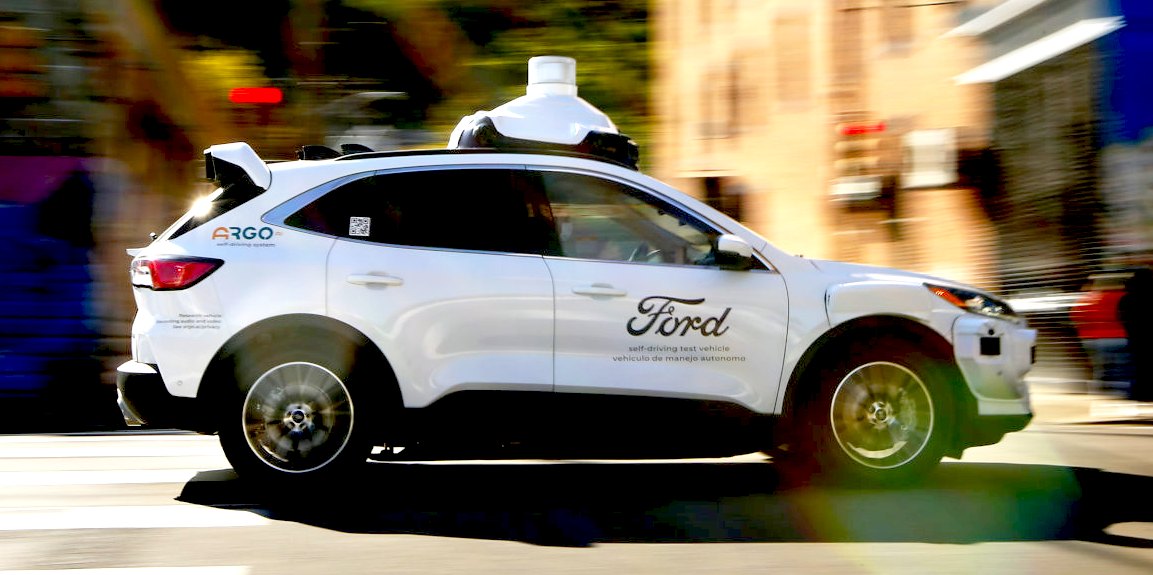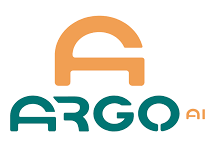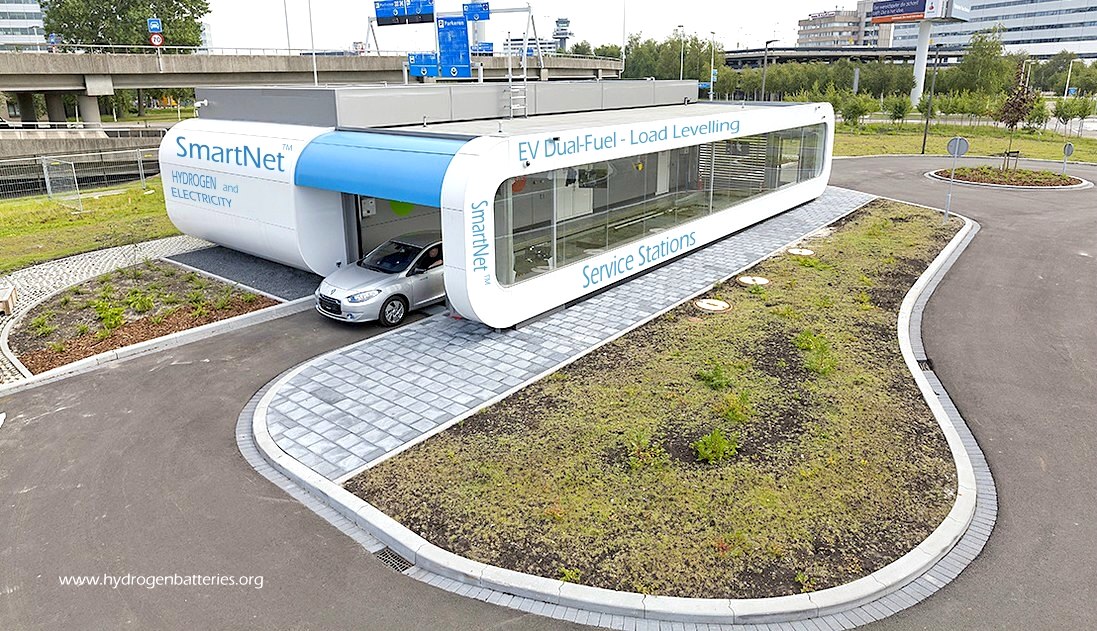|

SILICON
HIGHWAY - Self driving trucks for freeway haulage logistics is all the
rage at the moment for investors looking for the latest digital gold rush.
Argo AI, Waabi,
Zoox,
Cruise,
Kodiak,
Momenta,
Navya,
joins Pony.ai,
Pronto.ai,
Didi
Chuxing, Waymo, Aurora,
TuSimple
and AutoX
as they look for the elusive holy grail of AI on the road, somewhat blowing
wildcard Tesla
into the weeds. You can read more about these companies and the media
coverage, and reviews, on this site. Even with the green
hydrogen
revolution taking place all over the world, there is as yet no energy
vending system for these autonomous vehicles. It's competition as usual, in
a world calling for collaboration.
Self-driving cars and trucks
may drive themselves, but development is driven by economics. They are forecast to grow exponentially in the next two decades. How we deliver goods, the ownership of personal vehicles, ridesharing, public transportation – these all will take new shapes as
self-navigating
electric vehicles (AEVs) accelerate.
Cities, utilities, industry players and policymakers are quickly scaling to deliver on
AEVs, which promise to be safer, faster, more cost-effective, and cleaner for our health and environment than yesterday’s mobility systems.
REUTERS 9 JUNE 2021 - ARGO AI'S CEO SAYS IPO EXPECTED WITHIN YEAR
Self-driving startup Argo AI, backed by Ford Motor Co (F.N) and Volkswagen AG (VOWG_p.DE), expects to pursue a public listing within the next year, founder and CEO Bryan Salesky said on Wednesday.
"So we're actively fundraising and are going out this summer to raise a private round initially," Salesky said at The Information's Autonomous Vehicles Summit. "And then we're looking forward to an IPO within the next year."
"The raise this year will definitely provide capital that gives us plenty of runway and will help us continue to scale out," he said, adding that autonomous driving is a capital-intensive business.
Ford and Volkswagen each hold a 42% ownership interest in Argo AI.
Last year, Germany's Volkswagen closed its $2.6 billion investment in Pittsburgh-based Argo AI, which valued the company at just over $7 billion.
CNBC 12 MAY 2021 - VW PLANS SELF DRIVE MICROBUS WITH ARGO BY 20205
Volkswagen is planning to bring to market by 2025 a version of its upcoming microbus, a retro-styled electric van, with the ability to drive itself in certain circumstances, the automaker announced Wednesday.
VW is developing the vehicle with Argo AI, a Pittsburgh-based autonomous vehicle start-up backed by the German automaker and Ford Motor. Testing of the ID.Buzz vans to transport people and goods is expected to begin this summer in Munich, according to the companies.
“Our aim with the self-driving version of the ID.Buzz is to facilitate commercial deployment of transport and delivery services starting in 2025,” Christian Senger, head of autonomous driving at VW’s van unit, said in a press release.
The ID.Buzz models are expected to offer what is known as Level 4 autonomy, which means drivers will not be required to take control but the vehicles can only operate in specific conditions such as geofenced areas or defined routes. That compares with fully autonomous systems at Level 5.
Current driver-assist technologies such as General Motors’ Super Cruise or
Tesla’s Autopilot that require constant driver supervision are considered Level 2. The systems use a host of onboard cameras, sensors and radar to drive the vehicle. Some also use high-definition mapping and other technology.
Argo is currently testing its self-driving technology in six U.S. cities using
Ford vehicles. The company last week unveiled its own lidar, which many believe is the key technology to commercializing autonomous vehicles. Lidar will be used on the ID.Buzz, Argo’s first VW test vehicle, as well as Ford models, the company said.
Lidars, or light detection and ranging systems, can sense surroundings and help cars avoid obstacles. They use light to create high-resolution images that provide a more accurate view of the world than cameras or radar alone.
Argo CEO Bryan Salesky told Blomberg News last week that the company will raise additional funding this summer, followed potentially by an initial public offering “in the future.”
“We’ll be looking at an IPO in the future as well. I think that it’s one of those things where we don’t know the exact source we’re going to take the funding from next. We’re looking at a bunch of options,” he said, adding a deal with a SPAC, or special purpose acquisition company, is a possibility.
Bloomberg previously reported Argo was considering a public listing as soon as this year.

LIDAR
LEVEL 4 - Argo AI is an autonomous driving technology company headquartered in Pittsburgh, Pennsylvania. The company was co-founded in 2016 by Bryan Salesky and Peter Rander, veterans of the Google and
Uber automated driving programs. Argo AI is an independent company that builds the software, hardware, maps, and cloud-support infrastructure to power self-driving vehicles. Argo has two major investors: Ford Motor Co. (2017) and the Volkswagen Group (2020). Argo’s Self Driving System (SDS) technology will be incorporated into vehicles manufactured by the auto-makers through these partnerships.
Argo claims its technology will deliver Level
4-capable Self-Driving Systems (SDS) for autonomous driving (AV) vehicles. Autonomous driving categories are defined by the Society of Automotive Engineers and have been adopted as industry standards by the U.S. Department of Transportation.
The technology developed by Argo comprises the entire self-driving system, including the software and hardware compute platforms, sensors, cameras, radar, and light detection and ranging radar (LIDAR).
In October 2017, Argo purchased Princeton Lightwave, a producer of lidar technology, based in Cranbury, NJ.
In 2019, Argo introduced its third-generation test vehicle, based on the Ford Fusion Hybrid, which incorporates higher-resolution cameras with wider dynamic ranges, increased computer processing power, and heating and cooling systems improvements.
Argo plans to deliver autonomous driving technology for shared fleets rather than personal ownership with applications including ride-hailing and goods delivery services.
ABOUT ARGO AI
Argo AI was co-founded in November 2016 by roboticists Bryan Salesky and Peter Rander. As of July 2020, the company employed over 1000 employees with
offices in Pittsburgh, Detroit, Palo Alto, Cranbury, NJ and Munich, Germany. In June 2020, Argo was valued at $7.25 billion.
Salesky (CEO) was born in Woodhaven, MI outside of Detroit and settled in Pittsburgh, PA, where Argo is based. He earned a Bachelor of Science in Engineering from the University of Pittsburgh in 2002 and began working at Union Switch & Signal, a supplier of railroad signaling equipment, where he worked on anti-collision software for trains. From 2004 to 2011 he worked at the National Robotics Engineering Center (NREC) at Carnegie Mellon’s Robotics Institute, where Rander was his boss.
In 2007, Salesky and Chris Urmson led Carnegie Mellon’s software development team for the third DARPA driverless car competition dubbed the Urban Challenge. From 2013 - 2016, Salesky served as director of hardware development for
Google’s autonomous vehicle initiative, now known as
Waymo.
Rander (President), a Michigan native and University of Detroit Mercy alumnus earned his MS and Ph.D. degrees in Robotics at Carnegie Mellon University (CMU) and worked alongside Salesky at the National
Robotics Engineering Center. From 2015 to 2016, Rander was the engineering lead for Uber’s Advanced Technology Group (ATG); Uber’s self-driving car unit.
Argo AI was initially funded in late 2016 through a small seed round from an undisclosed source. In February 2017, Ford Motor Company announced that it was to invest $1 billion in Argo AI over the next five years, to develop a virtual driver system for the automaker's autonomous vehicle coming in 2021. Ford became the company’s largest shareholder, enabling them to hire 200 additional employees including members of Ford's R&D team.
In June 2020, Volkswagen invested $2.6 billion into Argo AI. Under the terms of the deal,
Volkswagen committed $1 billion in cash into Argo AI and its Munich-based Autonomous Intelligent Driving (AID) unit - valued at $1.6 billion. The AID technology unit, consisting of over 200 employees, was first launched to develop autonomous vehicle technology for VW automobiles. According to the terms of the deal, VW was to purchase Argo AI shares from Ford for $500 million over three years, while Ford would invest the remaining $600 million of its $1 billion cash commitment to the company. In executing the agreement, the Munich-based AID team was integrated into Argo AI to form the company’s European engineering center.
Between the partnerships, Argo has raised over $3.6 billion. Argo’s ownership is shared among its largest shareholders, Ford and Volkswagen, each of whom owns 40 percent of the company and its management team with just over 20 percent—to utilize as an equity incentive for employees. Its board of directors is composed of two Ford seats, two Volkswagen seats, and three Argo seats.
RECHARGING UNMANNED EVS
FOR SMARTER CITIES
At the moment, the only system
that would be capable of servicing such robotic
vehicles would be the proposed SmartNet™
dual fuel service stations, where such vehicles do not need human assistance to replenish their energy
reserves, using modular
energy vending, where blue is the new green,
helping to cool our climate.
This assumes compatibility with a cartridge based energy transfer system, to
crack the chicken
and egg situation.
Allied to this is PAYD
(Pay As You
Drive) billing, also seen as a necessary function for autonomous,
unmanned,
self-driving, robotic
vehicles, is helping to make the
world a better place with cleaner
air to breathe.

Reach
Argo AI by phone: +1 412-525-3483
General Inquiries: info@argo.ai
Press: press@argo.ai
Jobs: jobs@argo.ai
General inquiries: info@argo.ai
Press: press@argo.ai
Partnerships: partnerships@argo.ai
LINKS
& REFERENCE
https://www.reuters.com/technology/argo-ais-ceo-says-ipo-expected-within-next-year-2021-06-09/
https://markets.financialcontent.com/stocks/news/read/41304924/argo%E2%80%99s_new_lidar_sensor_could_help_ford
https://www.reuters.com/technology/argo-ais-ceo-says-ipo-expected-within-next-year-2021-06-09/
https://markets.financialcontent.com/stocks/news/read/41304924/argo%E2%80%99s_new_lidar_sensor_could_help_ford
UNMANNED ELECTRIC VEHICLES
THE AUTOMATED and ELECTRIC VEHICLES ACT 2018

SMART
SERVICING FOR ROBOT VEHICLES - Those looking for a future proofed infrastructure for
renewably sourced energy for electric vehicles, may want to consider the new
breed of self driving passenger cars, taxis, and commercial trucks that will benefit from automated
recharging if they are to be fully autonomous in operation - most especially
unmanned robotic taxis and freight vehicles. These units are potentially
safer in terms of hydrogen handling, than piped gas, offering an alternative
energy network.
Please
use our A-Z
INDEX to navigate this site
This
website is provided on a free basis to
promote zero emission transport from renewable energy in Europe and Internationally. Copyright ©
Universal Smart Batteries and Climate Change Trust 2021. Solar
Studios, BN271RF, United Kingdom.
|



